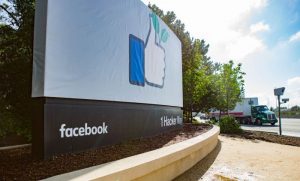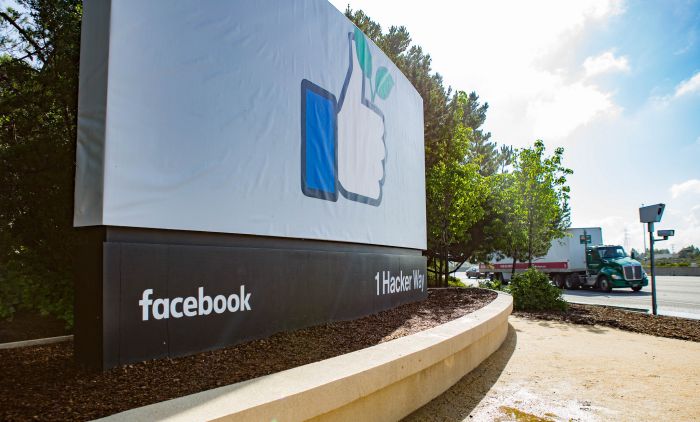Facebook is still open to manipulation by malicious political actors; the dialysis industry has spent over $100 million to fight a ballot measure that seeks to regulate it; AT&T does everything it promised not to do in its defense of the Time Warner merger; and can tech workers help police their own employers?

- With the midterms only days away, all eyes are on Facebook’s efforts to combat voter manipulation and suppression. So how is it going? Not so great, it turns out. Despite Facebook’s promises to make political advertising more transparent by disclosing who pays for political ads, a Vice investigation by William Turton found that the “paid for by” feature “is easily manipulated and appears to allow anyone to lie about who is paying for a political ad, or to pose as someone paying for the ad.” The Vice team attempted to buy fake ads on behalf of all 100 sitting US senators, and all of them were approved, “indicating that just about anyone can buy an ad identified as ‘Paid for by’ by a major US politician.” A previous test by Vice also succeeded in purchasing Facebook ads on behalf of Vice President Mike Pence and ISIS, and a similar test by Business Insider’s Shona Ghosh managed to run ads as being “paid for” by Cambridge Analytica, showing that Facebook is still “open to manipulation by bad actors.” ProPublica has also identified “12 ad campaigns in which energy, insurance and other industries masked their sponsorship of political messages on Facebook.”
- Days after last week’s synagogue massacre in Pittsburgh, reports The Intercept’s Sam Biddle, Facebook still allowed advertisers to target users interested in “white genocide.” The Intercept, he writes, “was able to select ‘white genocide conspiracy theory’ as a pre-defined ‘detailed targeting’ criterion on the social network to promote two articles to an interest group that Facebook pegged at 168,000 users large and defined as ‘people who have expressed an interest or like pages related to White genocide conspiracy theory.’” Once reached for comment, Facebook “promptly deleted the targeting category, apologized, and said it should have never existed in the first place.”
- Facebook did, however, ban ads from Bloom, “an online identity management service with a focus on credit scoring.” In an interview with CNBC, Bloom’s co-founder said he believes Facebook banned the company’s ads because its service competes with Facebook’s own identity service, Facebook Login.
- Members of the British and Canadian Parliaments are joining forces to hold an unprecedented joint “international grand committee on disinformation and fake news,” in the hopes of getting Facebook CEO Mark Zuckerberg to testify after he previously refused requests by both parliaments to appear in person. In the US, writes The Verge’s Makena Kelly, lawmakers are “still figuring out exactly what fixing privacy might mean” six months after Zuckerberg testified before Congress. Meanwhile, the UK’s Chancellor of the Exchequer, Philip Hammond, unveiled a proposed 2 percent tax on the revenues that tech giants earn in Britain. The tax, said Hammond, will apply to search engines, social media platforms and online marketplaces that generate at least £500 million in global revenues—meaning Amazon, Facebook and Google.
- Facebook’s latest quarterly report proved to be a mixed bag, after the company beat expectations on earnings but also revealed that, following two years of numerous privacy scandals, its user growth is slowing and it is losing users in Europe. In a subsequent earnings call, Zuckerberg seemed to suggest that Facebook “could be unrecognizable by 2020,” writes Alexis C. Madrigal in The Atlantic. In Bloomberg, however, Leonid Bershidsky argues that Facebook is “merely turning into an Apple lookalike, profiting from network effects rather than from disruptive innovation or any kind of residual positive vibe from its brand.” Zuckerberg himself, writes Farhad Manjoo in the New York Times, is secure in his position as “one of the most powerful unelected people in the world. Like an errant oil company or sugar-pumping food company, Facebook makes decisions that create huge consequences for society—and he has profited handsomely from the chaos.”
- In other midterms news: the dialysis industry has spent $111.4 million to oppose California’s Proposition 8, which aims to rein in dialysis costs, reports David Dayen in The Intercept. Rep. Steve King (R-Iowa), a staunch racist who has been rebuked for his white supremacist rhetoric by the GOP’s campaign chief, has lost a number of corporate donors in the past two weeks, among them Intel, Land O’Lakes and Purina. And a “dark money loophole” has allowed a Texas super PAC called Texas Forever to pump $1.29 million into TV ads attacking Republican Senator Ted Cruz.
- How will the economy affect the midterms? “The competitive districts that will decide control of the House are richer and more economically vibrant than the country as a whole. But there is little evidence that the thriving economies in those districts are buoying Republican candidates enough to guarantee victories against well-funded Democratic challengers,” report Jim Tankersley and Ben Casselman in the Times.
- Susan Molinari, Google’s top lobbyist in Washington for the past seven years, is stepping down.
- Nearly 17,000 Google employees all over the world staged a massive walkout to protest the company’s handling of sexual harassment, following last week’s exposé by the New York Times that revealed Google protected executives accused of sexual misconduct and paid them millions in exit packages. “Google’s famous for its culture. But in reality we’re not even meeting the basics of respect, justice and fairness for every single person here,” one Google employee told the Times. Silicon Valley workers, argues the Financial Times’ editorial board, are emerging as a “powerful voice for good” and “can help to police their employers.”
- In the New Yorker, Anand Giridharadas explores the battle between two Silicon Valley billionaires—Salesforce CEO Marc Benioff and Twitter CEO Jack Dorsey—over Prop C, a San Francisco ballot measure that aims to raise taxes on tech firms and other large businesses to pay for homeless programs. Ostensibly, the public spat between the two is over how to best deal with the homeless problem in San Francisco, where there are “about a hundred homeless San Franciscans for every billionaire.” But the argument, writes Giridharadas, really revolves around “democracy, wealth, power, and those their revolution has forsaken and displaced.”
- Two more signs that AT&T is breaking the promises it made in defense of its merger with Time Warner: it killed FilmStruck, the streaming service for classic movies, and it pulled HBO and Cinemax content off of Dish’s satellite service—“the first time in HBO’s more than four-decade history that programming has been blocked at a distribution partner over a contract dispute.”
- From Equitable Growth’s excellent and highly-recommended blog series “Competitive Edge”: ahead of Thursday’s FTC hearing on antitrust’s consumer welfare standard, Jonathan Sallet explains how the consumer welfare standard came to be and why protecting the competitive process would be “the next step in the evolution of antitrust.”
- Warren Buffett’s Berkshire Hathaway bought back $928 million of its own stock.
- From the New York Times: The Fed wants to loosen regulations for 16 financial institutions with assets worth between $250 billion and $700 billion, including US Bancorp, Capital One and American Express, as part of the Trump administration’s efforts to roll back financial regulations. In an interview with CNBC, Sen. Sherrod Brown (D-Ohio) says Democrats are playing “defense” against the GOP’s attempts to deregulate Wall Street.
- From the Washington Monthly: the case for small business collusion.
- The New York Times’ Lisa Friedman offers a complete guide to the half-dozen ethics investigations concerning Interior Secretary Ryan Zinke.
- From the Washington Post: the big secret about the Affordable Care Act is that “it’s working just fine.”
- The US-China trade war has been mostly focused so far on products like agricultural goods and household appliances, but what the US and other democracies should really worry about is China’s digital authoritarianism, argue Freedom House’s Michael Abramowitz and Michael Chertoff in the Washington Post.
Stigler Center Goings-On
- “Economists have always been fond of Uber,” writes The Economist in its coverage of the Stigler Center’s working paper on the costs of ride-sharing, but “if economists subjected Uber and its competitors to a cost-benefit analysis, they might not be so impressed.”
- The short-term political interests of Italy and the EU “are in a collision with their long-term political and economic interests—not to mention the global economy’s,” writes Luigi Zingales in the New York Times.
- From Chicago Booth Magazine: ProMarket editorial board member Guy Rolnik’s class “prepares future entrepreneurs for the noneconomic influences that can doom or propel a good idea.”
- In the latest episode of Capitalisn’t, journalist and author Glenn Greenwald (who lives in Brazil) tells Kate Waldock and Luigi Zingales how rampant corruption, violent crime and a struggling economy have given rise to Jair Bolsonaro and Brazil’s radical right.
Disclaimer: The ProMarket blog is dedicated to discussing how competition tends to be subverted by special interests. The posts represent the opinions of their writers, not necessarily those of the University of Chicago, the Booth School of Business, or its faculty. For more information, please visit ProMarket Blog Policy.






